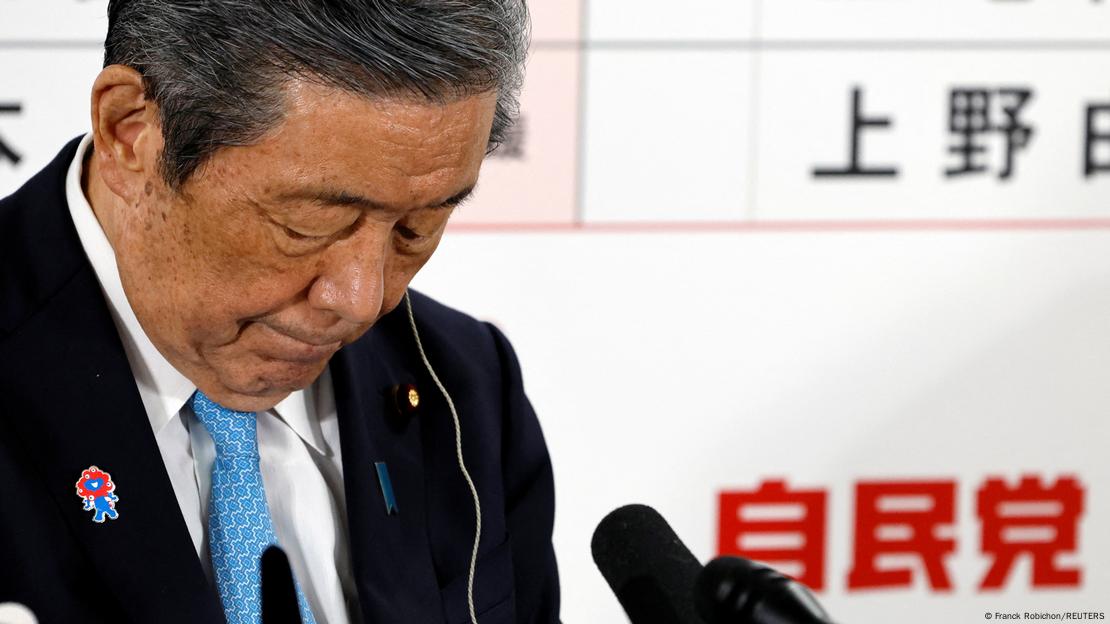
On July 20, 2025, the voting for the 27th Japanese Senate election came to an end. According to the exit polls jointly released by several Japanese media outlets and the subsequent vote count, the ruling coalition composed of the Liberal Democratic Party (LDP) and the Komeito Party only won about 46 of the contested seats. After adding the non-contested seats, they had a total of 121-122 seats, falling short of the majority of 124 seats in the 248-seat Senate. This outcome marked the first time since the LDP's establishment in 1955 that it lost its majority in both the House of Representatives and the House of Councillors, ushering in an era of "minority government" in Japanese politics, with implications far beyond the election itself.
I. Election Results: Three Key Characteristics of a Historic Defeat
The Formation of a Dual Minority Government
The ruling coalition had already lost its majority in the House of Representatives in the October 2024 election. This Senate election defeat means it has completely lost its dominance in both houses of the Diet. The LDP's seats dropped sharply from 118 before the election to 39, while the Komeito Party's seats fell from 23 to 8. Together, they held only 47 seats, setting a new low since the formation of the coalition.
Reconfiguration of Opposition Forces
The Constitutional Democratic Party emerged as the largest opposition party in the Senate with 22 seats. The Democratic Party for the People (17 seats) and the Japan Innovation Party (7 seats) rose as centrist forces, while the far-right "Participatory Party" made a surprising breakthrough, winning 14 seats, a 13-fold increase from the previous election. This "fragmentation" has shifted Japanese parliamentary politics from a "one-party dominance" to a "multi-polar game."
The Impact of Populist Waves
The "Participatory Party" attracted a large number of conservative voters with its "Japan First" exclusionary stance. Its leader, Shingai Sohachi, drew over 10,000 people to a campaign rally in Tokyo. The party's proposals, such as "limiting foreigners' residency rights" and "amending Article 9 of the pacifist constitution," reflect the intensifying rightward trend in Japanese society.
II. Root Causes of Defeat: Economic Governance Failure and Political Trust Collapse
Price Crisis Undermines Ruling Foundation
Japan's core CPI has exceeded the central bank's 2% target for 22 consecutive months, reaching 3.3% in June 2025. Despite the Ishiba administration's introduction of a 10 trillion yen energy subsidy plan, a poll shows that 78% of respondents believe that "the government has not effectively dealt with inflation." At a polling station in Minato-ku, Tokyo, 65-year-old office worker Kenjiro Yamada said, "My salary increase can't keep up with the rise in rice prices. The ruling party's promise of 'wage growth outpacing inflation' is just empty talk."
Aftermath of Political Black Money Scandal
The "kickback" scandal involving the "Abe faction" and other factions within the Liberal Democratic Party (LDP) that was exposed in 2023 continues to have repercussions, causing the party's support rate to drop by 6.2 percentage points to 20.8% compared to before the election, falling below the "threshold for resignation." In Osaka Prefecture, voter Miyuki Nakamura said, "LDP members treat the Diet like an ATM. Such a party doesn't deserve to be in power."
Paralyzed Policies of a Minority Government
Since its establishment, Ishiba's cabinet has repeatedly faced setbacks on key issues such as constitutional amendment and defense spending tax hikes due to opposition from the opposition parties. After this election defeat, the government's "free child care" and other livelihood policies may be stranded due to the stagnation of budget deliberations.
III. Future Outlook: Three Uncertainties Test Japan's Political Landscape
The Survival Crisis of Ishiba's Administration
Although Ishiba Shigeru emphasized after the election that "as the leader of the largest party, he has the responsibility to continue governing," the calls for his resignation within the Liberal Democratic Party (LDP) have been growing. Former Secretary-General Nikai Toshimitsu openly stated, "After two consecutive election defeats, the president must take full responsibility." If the support rate drops below 20%, the LDP may be forced to initiate a presidential election.
The Strategy Game of the Opposition's Coalition
Yoshihiko Noda, the leader of the Constitutional Democratic Party, has hinted at submitting a no-confidence motion against the cabinet in collaboration with the Democratic Party for the People and others. However, there are differences within the opposition on issues such as constitutional amendment and nuclear power policy, raising doubts about whether they can form an effective counter-alliance.
Increased Uncertainty in the Japan-US Alliance
The Trump administration in the United States plans to impose a 25% tariff on Japanese automobiles starting from August 1st, and the Japanese government, due to the divided parliament, is struggling to quickly pass countermeasures. Professor Takahara Akio of the University of Tokyo warns, "If the tariff war escalates, Ishiba could become the first prime minister to step down due to a diplomatic crisis since the end of World War II."
Conclusion: A Paradigm Shift in Japan's Political Ecology
This election defeat is not only a setback for the LDP but also marks the complete end of Japan's post-war "1955 System." Under the triple pressures of persistent inflation, population decline, and escalating geopolitical conflicts, Japanese politics is shifting from "stable majority" to "volatile minority." How to restructure the policy agenda and rebuild political trust will be the "question of the era" that Ishiba and subsequent administrations must answer. The rise of far-right forces has taken this East Asian island nation a dangerous step to the right, and its spillover effects deserve high vigilance from the international community.

According to the foreign media The Verge, recently, Tesla CEO Elon Musk's goals in the field of fully autonomous driving (FSD) have once again fluctuated.
According to the foreign media The Verge, recently, Tesla C…
In early 2026, Greenland along the North Atlantic coast bec…
Recently, the century-old American high-end department stor…
Recently, the U.S. stock market has appeared turbulent amid…
Recently, the largest private equity firm in South Korea, M…
In early 2026, after the Trump administration detained Vene…